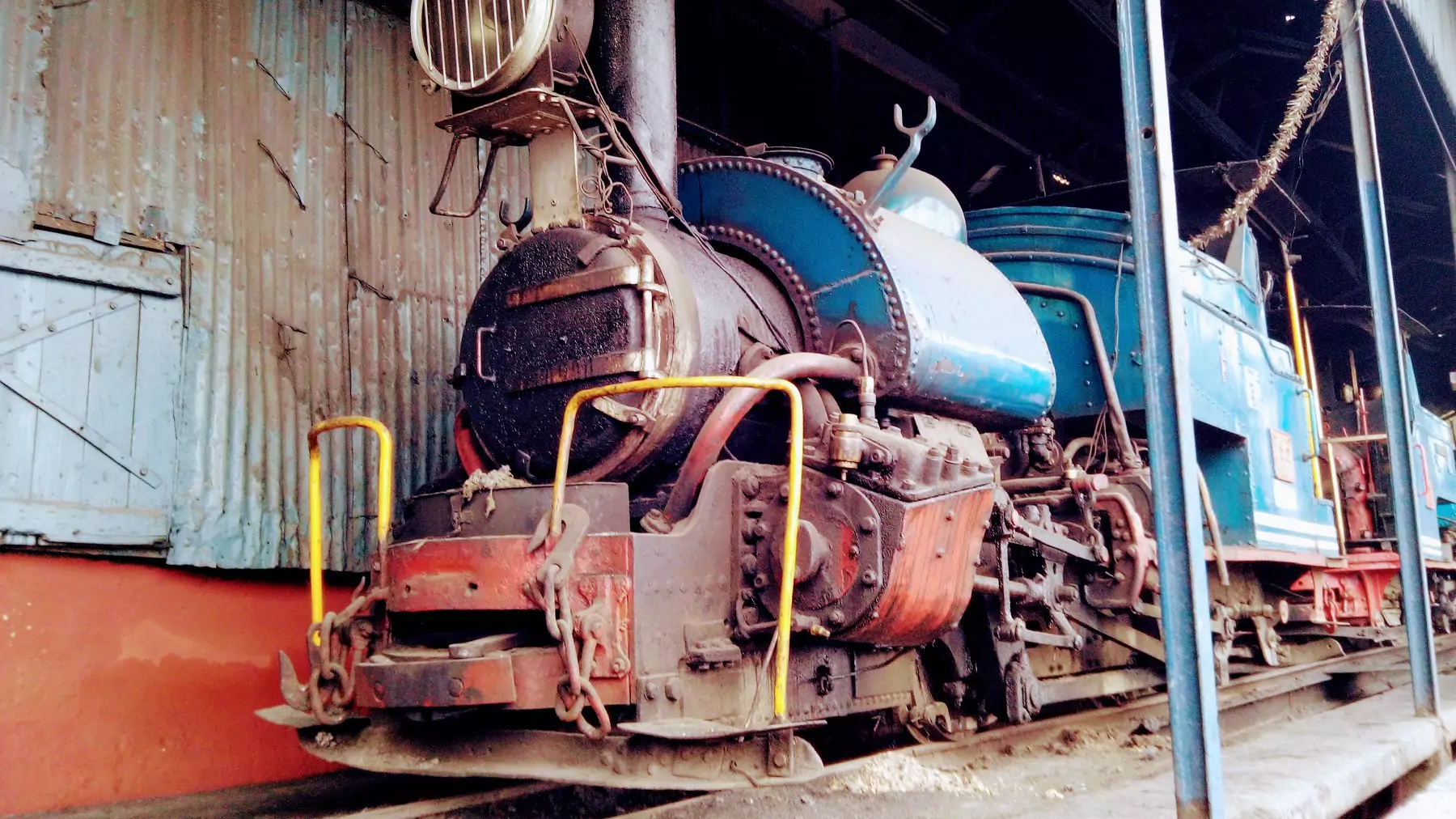Darjeeling
Best for : history, views, food and culture

Darjeeling gained prominence during the British Raj and became a popular hill station for British officials seeking respite from the summer heat. Its strategic location near the borders of India, Nepal, and Bhutan contributed to its significance as a trading post and a gateway to the neighbouring countries. If you have plans for a visit you can check our
Places of Interests
One of the iconic attractions in Darjeeling is the Darjeeling Himalayan Railway, also known as the "Toy Train." This narrow-gauge railway, recognized as a UNESCO World Heritage Site, winds its way through the scenic hills, offering stunning views of the surrounding landscapes. The train ride is a memorable experience and a must-do for visitors.
Another highlight of Darjeeling is its tea industry. The region is renowned for producing high-quality tea, and the hill slopes are adorned with vast tea estates. The Happy Valley Tea Estate is one of the prominent tea gardens where visitors can learn about the tea-making process, enjoy a cup of fresh Darjeeling tea, and explore the beautiful surroundings.
Apart from its natural beauty and tea gardens, Darjeeling offers several other attractions. Visitors can visit viewpoints like Tiger Hill to witness mesmerizing sunrises over the Kanchenjunga Mountain range, explore monasteries like the Japanese Peace Pagoda, and enjoy walks along the Mall Road, which is lined with shops, cafes, and colonial-era buildings.
Darjeeling is also a base for adventure enthusiasts looking to explore the nearby mountain ranges. Trekking, hiking, and mountaineering expeditions are popular activities in the region, specially in the Singalila National Park region.
Overall, Darjeeling is a captivating destination that combines natural beauty, cultural heritage, and colonial charm. Its panoramic vistas, pleasant climate, tea gardens, and warm hospitality make it a favourite choice for tourists seeking a serene and rejuvenating hill station experience.
Rural tours in the Darjeeling Hills offer visitors a chance to experience the authentic and rustic charm of the region, away from the bustling town. Here are some options for rural tours in the Darjeeling Hills:
- Tea Garden Experience: Darjeeling is famous for its tea estates, and a rural tour can include visits to the tea gardens. You can learn about the tea-making process, interact with tea workers, and even try your hand at plucking tea leaves. Some tea estates also offer homestay experiences, allowing you to immerse yourself in the local culture.
- Village Visits: Explore the quaint villages nestled amidst the hills. You can interact with the locals, witness their daily activities, and learn about their unique traditions and customs. Experience the warmth of village life, taste local cuisine, and maybe even participate in traditional folk dances or music performances.
- Organic Farming Tours: Darjeeling Hills are known for their organic farming practices. Take a tour of organic farms where you can learn about sustainable agriculture techniques, try your hand at farming activities, and savour freshly harvested organic produce. It's a great opportunity to understand the importance of organic farming and its impact on the local economy.
- Rural Homestays: Opt for a rural homestay experience, where you can stay with local families in villages. This allows you to live like a local, participate in their daily activities, and get a deeper understanding of their way of life. You can assist in cooking traditional meals, engage in farming or handicraft activities, and even go on guided nature walks or hikes with your hosts.
- Forest Trails and Nature Walks: Darjeeling Hills are blessed with lush green forests and abundant biodiversity. Explore the rural areas through guided forest trails and nature walks, where you can observe various species of flora and fauna, enjoy the serenity of nature, and learn about the region's ecological significance.
- Cultural Experiences: Rural tours in Darjeeling also provide opportunities to experience the local culture. Attend traditional festivals, visit monasteries or temples, witness cultural performances, and interact with artisans practicing traditional crafts like pottery, weaving, or wood carving. This allows you to gain insight into the rich cultural heritage of the region.
Interested in a visit?